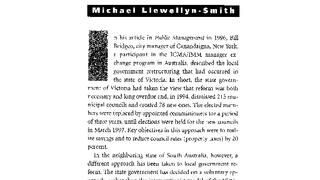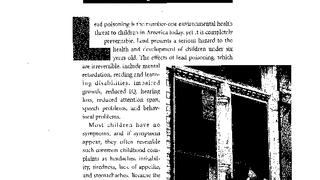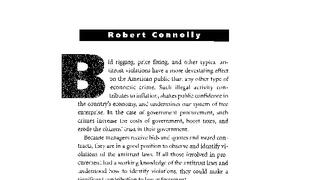
This article highlights a voluntary approach to local government reform in the state of South Australia, in contrast with mandatory reform in Victoria

This article discusses local governments' involvement in the removal of lead-based paint from local housing units.

This article discusses the manager's role in enforcing antitrust laws. Highlights the various ways a manager may come into contact with offenders...

This October 1998 document is an advisory opinion issued by the Seattle Ethics and Elections Commission (Washington).

This City of Cincinnati, Ohio (2008 U.S. Estimate Census Estimate population: 333,336) document outlines the ethics policy for city employees.

This City of Lynnwood, Washington (2008 U.S. Census Estimate population: 33,572), code of ethics regulates the conduct of city personnel regarding personal gain or profit...

The city manager is considering purchasing a historic home, located in a languished part of the city, and renovating it.


